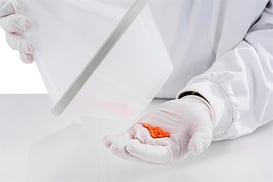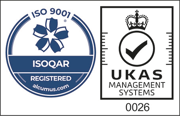The recent European ban of titanium dioxide in Food and Nutraceutical products creates a huge challenge for the industry and raises wider concerns over its potential extension to the pharmaceutical sector. With thousands of pharmaceutical products currently using titanium dioxide in tablet or capsule coatings, the reformulation race is on to identify suitable alternatives.
What is Titanium Dioxide Used For?
Typically used as an opacifier, excipient, or colour agent, titanium dioxide has been used for many years across a range of industries including paints, cosmetics, food, and medicines.
From 7 August 2022 titanium dioxide (also known as TiO2 or E171) was banned from use in dietary supplements and food in the European Union (EU) due to the possibility that it might cause DNA or chromosomal damage.
Titanium Dioxide Ban – Good or Bad?
While opinion is divided over the titanium dioxide ban, one thing is now certain: Any dietary supplements or foods containing the additive must now be reformulated using alternatives to E171 if they intend to remain on the market in Europe.
Should the ban be extended to cover pharmaceuticals, there would be a considerable impact on manufacturers, requiring rapid research into reformulation options.
Reformulation & Colour Matching Without Titanium Dioxide
Reformulation is not a simple task when there is no direct alternative available for the banned additive.
Nutraceutical manufacturers using titanium dioxide in tablet or capsule coatings face the additional challenge of colour matching new coating recipes exactly with their existing colour coatings.

Some potential alternatives to TiO2 include:
- Starches
- Talc
- Carbonates
- Phosphates
There is also the option of removing titanium dioxide from a formulation without adding a replacement, although this may not be an option where colour matching is required.
Could the Titanium Dioxide Ban Impact Pharmaceutical Products?
With the use of TiO2 in the pharmaceutical industry subject to ongoing scrutiny and evaluation, there is also a wider concern that titanium dioxide could be banned from pharmaceutical products.
The European Medicine Agency (EMA) are currently reviewing the feasibility of E171 alternatives while trying to understand how a ban would impact pharma products and patients.
With the recent criticism and EU ban it can no longer be taken for granted that TiO2 will continue to be universally available for drug products.[i]
As one of the most common pharmaceutical excipients, widely used as a white pigment in tablet and pellet coatings, a ban within pharmaceuticals would mean thousands of drugs would need to be reformulated without the white additive.
There are currently over 91,000 approved human drug products available on the EU market containing titanium dioxide[ii], so if the ban is extended to pharmaceutical products a huge amount of reformulation work would be required.
Every drug product containing TiO2 would need to be reformulated, individually assessed for compatibility, regulatory compliance, safety, availability, and quality.
Understandably, many pharmaceutical companies are already conducting research studies to evaluate the feasibility of replacing titanium dioxide with other substances in tablet coatings.
Reformulation: How Can Caleva Help You?
Caleva’s suite of laboratory machines can help you to reformulate your nutraceutical and pharmaceutical products quickly and cost-effectively, using small batches of just 10-50 g of material (dependent on your formulation and materials).
The new Mini Coater Classic (MCC) is the ideal solution for colour matching new coating formulations due to its unique small batch size capability. It can coat from a single tablet or capsule, or a small handful of pellets.
Discover Caleva's Reformulation Range
Caleva's range of lab equipment for formulation development includes the Mixer Torque Rheometer, the Multi Lab Scientific, and the Mini Coater Classic. This range all have a similar small batch size requirement which saves you time, materials, and money. This is particularly useful when working to a tight deadline, or when using scarce or expensive materials.
References:
[i] Juliana Radtke, Raphael Wiedey & Peter Kleinebudde (2021) Alternatives to titanium dioxide in tablet coating, Pharmaceutical Development and Technology, 26:9, 989-999, DOI: 10.1080/10837450.2021.1968900 https://www.tandfonline.com/doi/full/10.1080/10837450.2021.1968900
[ii] D. Schoneker, "How Banning TiO2 Might Impact Pharma," Pharmaceutical Technology's Quality and Regulatory eBook (March 2023) https://www.pharmtech.com/view/how-banning-tio2-might-impact-pharma




Leave A Comment